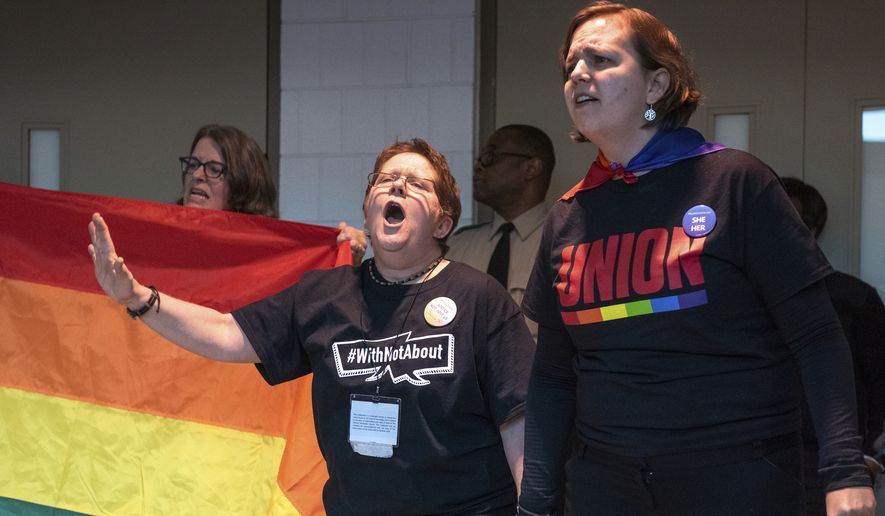LGBTQ advocates are issuing challenges to Christian foster care programs by targeting their government funding — and suing the federal government — in a gambit that could involve the Supreme Court, which sided with a Catholic foster program earlier this year.
A lesbian in Tennessee sued the Department of Health and Human Services earlier this month, arguing that a Christian foster program for refugee children is discriminating against her because of her sexual orientation.
Meanwhile, a same-sex couple in South Carolina has challenged HHS funding to a foster care agency that refuses to place children with anyone who is not Protestant or with any same-sex couple, no matter their religion. Their foster parent application was rejected by Miracle Hill, one of the state’s largest ministries that receives government funds.
The couple filed suit before the Supreme Court issued its ruling favoring a Catholic foster agency earlier this year, but their case is pending before the U.S. District Court for the District of South Carolina.
The cases are looming in federal courts amid last year’s Supreme Court ruling in Fulton v. City of Philadelphia, in which the justices sided unanimously with Catholic Social Services when it challenged the city denying it a foster care contract for failing to place children with same-sex couples.
“They are trying to force the court to resolve the ambiguity or uncertainty left by Fulton,” said Robert Tuttle, a law professor at George Washington University. “It really has to turn on the question of whether the law is being generally applied.”
The most recent lawsuit filed by Kelly Easter of Nashville, Tennessee, was launched after she reached out to the U.S. Office of Refugee Resettlement (ORR) with her inquiry to foster a refugee child. The foster care agency in her area is run by Bethany Christian Services, which receives government funding.
Ms. Easter was refused as a foster parent due to her being lesbian, according to her lawsuit. Even though she reported the discrimination to ORR, she was again denied by Bethany Christian Services after a second request.
“There is no valid reason for the government, or child-welfare organizations, to prefer heterosexual people over LGBTQ people when considering or approving would-be foster parents or making placement decisions. The scientific community has reached consensus that children reared by lesbian, gay, or bisexual parents are just as likely to be well-adjusted as children of heterosexual parents,” her lawsuit reads.
The complaint alleges that Ms. Easter’s constitutional rights were violated.
“I am heartbroken. It hurt to be turned away — twice — solely because of my identity. I’ve been a Christian since I was a little girl and my personal relationship with God is the most important thing to me. I also know that LGBTQ people can have thriving families and that they are as important and deserving as any other. How can the government tell me that my beliefs are wrong?” Ms. Easter said.
A spokesperson from the Justice Department did not respond to a request for comment.
The high court decided in Fulton v. City of Philadelphia that the city had allowed the commissioner to grant other exceptions to its anti-discrimination rule, so the law was not being generally or neutrally applied.
Ilya Shapiro, vice president of the Cato Institute, said Ms. Easter’s case is somewhat different because there were other foster provider options in Philadelphia, but that is not the case for Ms. Easter.
“This lawsuit has a much greater chance of success than Fulton did,” Mr. Shapiro said.
• Alex Swoyer can be reached at aswoyer@washingtontimes.com.




Please read our comment policy before commenting.